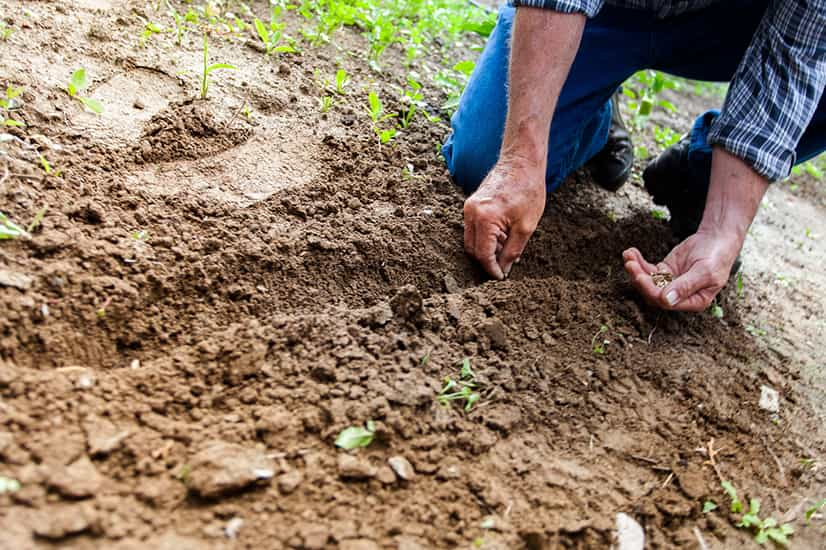Course Themes
- What is Permaculture?
- 12 Principles of Permaculture
- Three ethics: Earth Care, People Care, Fair Shares
- Importance of Observation
- Design Sequences
- Why do trees matter and how do they work?
- The Answer Lies in the Soil
- Cycles of Intervention
- Zones, Sectors and Throughputs
- Economic Sustainability
- Ecological Principles
- The Water of Life
- Understanding Plants
About your Instructor
Graham Bell
This Introduction to Permaculture Course was produced by the late Graham Bell. Graham passed away in March, 2023, after a short illness. Graham was educated at Oxford University and was Chair of Permaculture Scotland, Chair of Permaculture Association Britain (PAB) Education Working Group, and the longest-serving Permaculture Teacher in the UK with thirty-one years’ experience teaching on six continents. Graham authored The Permaculture Way and The Permaculture Garden. He was a registered Certified Teacher with PAB and Permaculture Institute of Australia, and he was the first holder of the Elders Award in the UK and was an Honorary Elder in Australia.
Graham was an internationally respected teacher, author, and lecturer in Permaculture and other allied disciplines. He was the first person in Britain to be awarded the Diploma in Permaculture by Bill Mollison (inventor of Permaculture) in 1990. In the 1990’s, as the lead instructor on the Countryside Premium Scheme (for farmers) for Scotland, he taught on six continents. He was a “trainer of trainers” (originally with the Agricultural Training Board now called Lantra) for twenty-five years.
Graham made his home in the Scottish Borders with his wife Nancy, and maintained the longest-standing intentional food forest garden in Britain. In the past, over a thousand people visited his home and food forest, a testament to the amazing productivity of this space.
Graham liked to say that his main career was ”as a storyteller. We learn and teach understanding for all the creatures in the living environment, how they interact, and how we can make them available and sustainable for all with the least amount of work. We never cease believing a better future is possible, and we keep sharing the skills to make it happen. This is only possible because we respect the prior knowledge of everyone who joins us in this progression.”
Introduction to Permaculture

What’s included
This is a series of 18 lectures and quizzes, where you will take a deep dive into this amazing design system that can be applied when: designing your home, garden, farm, business or community!

About Permaculture
Permaculture is all about being in balance with the planet and is an ideal tool to have in your bag whenever you are considering making a change.

How can it be used?
Permaculture Principles can be applied to all aspects of our lives. Whether you have a farm, a home, a family or are part of a community, permaculture can add value to what you do.
FAQs
Is this course completely online?
Yes, the course includes 18 pre-recorded lectures and quizzes delivered entirely online. You can login any time you like, watch the lectures as many times as you wish and then take the short, multiple-choice quiz.
Is this course self paced?
Yes, you can access and view the lectures and take the quizzes at your own pace. Students typically require about 40 hours in order to complete the IPC at a reasonable pace. We expect that a student can complete the IPC in 1 week, if studying full-time. You will have access to the IPC content for as long as we maintain the program.
When can I start?
You can start as soon as you sign up.
What will I learn?
In this program, you’ll learn about some of the principles of permaculture and how they can be applied to the land, to water management and to most aspects of life.
Course themes include:
-
- What is Permaculture?
- 12 Principles of Permaculture
- Three ethics: Earth Care, People Care, Fair Shares
- Importance of Observation
- Design Sequences
- Why do trees matter and how do they work?
- The Answer Lies in the Soil
- Cycles of Intervention
- Zones, Sectors and Throughputs
How many lectures are in the Introduction to Permaculture?
There are 18 lectures. Each lesson is a lecture delivered by Graham Bell with a PowerPoint presentation, with interspersed contributions from other Permaculturalists from various parts of the world. The PowerPoints will be available to download as PDFs. Each lesson is followed by a short quiz to help you track your comprehension.
How much does it cost?
$299 as a free-standing course.
Do I need any qualifications to start the course?
This course is designed for people with no background in the field.




